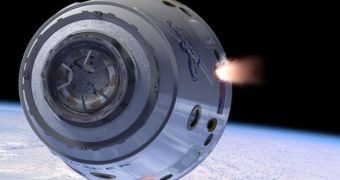One of the main space-related demands that US President Barack Obama made for the next fiscal year was the augmentation of the Office of Commercial Space Transportation's budget by $26.6 million. But the US Government Accountability Office (GAO) disproves of this measure
In a recent hearing held by members of the House Science, Space and Technology space and aeronautics subcommittee, the director of physical infrastructure at GAO, Gerald Dillingham, told lawmakers that perhaps a more gradual expansion is in order.
The expert argues that, given the pace at which the private space industry is developing today – and is predicted to do in 2012 – it makes no sense to increase OCST's capabilities and funding by such a large margin in a single year.
This Office functions under the supervision (and is a part) of the US Federal Aviation Administration (FAA), the government body in charge of regulating anything related to spaceflight. The purpose of the OCST is to regulate the activity of private space companies and their vehicles.
In addition to corporations that are currently developing resupply space capsules for the International Space Station (ISS), the organization also handles companies that are producing vehicles capable of suborbital flights, to be used as joyrides by rich customers.
Dillingham told the House subcommittee that there is no reason to allot so much more money (a 74 percent increase from last year) to this body, until the growth of the private space industry does not reach the limits of the body's current handling capabilities, Space reports.
During the May 5 hearing, the GAO official said: “We have argued that, maybe incrementally based on the development of industry, one could start making that move in that direction, rather than big-bang theory.”
But the head of the Commercial Space Transportation Office, George Nield, disagreed with this point of view. “As we look at what we’re seeing now […] there's a lot bubbling out in the world right now, and I think we’re about to see a rapid increase in a variety of different parts of the industry,” he says.
The expert admits that the private space industry has been slow to follow up on the promises it made 5 to 6 years ago, but adds that the situation is different today, since NASA itself is funding the construction of numerous spacecraft.

 14 DAY TRIAL //
14 DAY TRIAL //